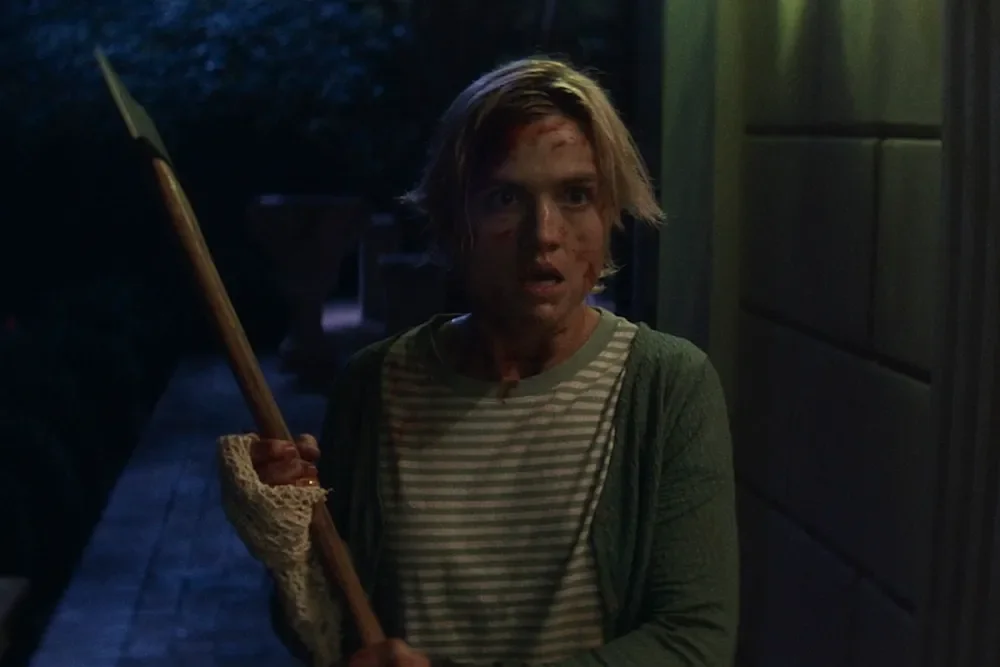Kogonada’s latest “Journey” is far from big, bold, or beautiful
Directed by Kogonada
Written by Seth Reiss
Starring Margot Robbie, Colin Farrell, Kevin Kline, and Phoebe Waller-Bridge
It’s not Kogonada’s fault. The director isn’t completely blameless, but the faults with A Big Bold Beautiful Journey lie not with the man behind After Yang—among of the best sci-fi movies of the last decade and one I wholeheartedly recommend—but with the script from Seth Reiss, the Late Night writer who also penned 2022’s truly dismal The Menu. The two scripts share many of their problems, namely a lack of interiority for all the time they spend rubbing your face in their thoughtfulness, then about art and now about life. While Kogonada knows his way around a color palette and a composition and may be able to wrangle some vibrance out of the proceedings, there’s only so much he can do to draw your attention when his script is dead set on then drawing it back to its own navel.
It presents two characters—David (Colin Farrell, The Penguin) and Sarah (Margot Robbie, Barbie)—who are drawn together after a wedding by sentient GPSs and are guided to a series of free-standing doors that lead them back through time and space to formative memories. They’re caught up in self-sabotaging cycles, we find, either scared of being hurt or of hurting the ones they love, and in the film’s best moments, the actors bring to life an honest exploration of what that feels like: Farrell’s anxiety at the thought missing out on connection because he doesn’t think he’s the sort who dances, Robbie’s idea that loneliness isn’t just a bad feeling but in fact the absence of feeling that negative emotions might be preferable to.
Unfortunately, then there’s the rest of the thing. In case you couldn’t tell from its title, A Big Bold Beautiful Journey is a film deeply possessed of its own whimsy and weight, incapable of letting a moment sit without belaboring its beauty or a bit that wasn’t funny to begin with. A door sticks and must be opened at a very precise moment, and we must watch the entirety of the trial and error of opening it. Phoebe Waller-Bridge (Rule Breakers) swears a lot and has a German accent she randomly drops. When asked if they’d like to go on a big, bold, beautiful journey, they must repeat it several times, scream it “with the passion of a thousand suns” or some such cliché. Anything that can be stretched out is stretched out, forced into a playful shape by sheer force of will.
Meanwhile, the memory sequences seem to have been written around faux-weighty dialogue with no thought given to actually presenting them with a coherent reason for being beyond making pretty people delivery freshman-year philosophy against a bad green screen. With that done, it more often than not cuts to David and Sarah back on the road; there’s no build-up, pay-off, or resolution, just a rush within the scene to get to the sort of quote that sounds good score to an inspirational piano and a subsequent rush to get to the next scene. The result is dialogue that is begs to be seen as deep in sequences and a story that are ridiculously threadbare.
Elsewhere, it seems to be trying to make a point about performance. When first given his rental car, David is presented with a set-up reminiscent of an audition. He was in a high school musical production in his youth. He and Sarah occasionally find themselves on a stage seemingly in the midst of a rehearsal in what’s either another liminal space on their journey or an artistic flourish purely for the audience. A character is referred to later as “the understudy.” It’s very nearly an acting-focused coming of age story, two people learning to perform adulthood and connecting, finding their roles as they act out their early experiences. This is entirely disconnected from the movie at hand, though, either tossed in haphazardly or whittled down over the course of many, many revisions.
At times, one wonders if it wouldn’t have played better as a musical, with its fast-and-loose relationship with narrative logic, magical realism, and what can only be described as theater kid energy. It’s a movie that’s meant to be understood on an emotional level rather than an intellectual one. Yet its cardinal sin is this: like being trapped in a self-sabotaging cycle—a feeling I know well—it is painfully monotonous. In its themes, in its presentation, in its characterizations. We’ve seen the girl who believes her partner loves a version of her, the man who gets bored with his relationship, the people who leave before they can get left, and nothing about the way they’re portrayed here is worth the price of admission.
Rating: C
A Big Bold Beautiful Journey is now playing in theaters. You can watch the trailer here.






